George M. Brewer and the Music Scene in Montreal
during the First Half of the 20th Century
Speakers: Lorne Huston and Marie-Thérèse Lefebvre
When: Thursday, November 18, 2021, 19:30 to 21:00
Where: In virtual mode
Lecture mainly in English with an introduction and a short section of the main presentation in French, followed by a bilingual question period.
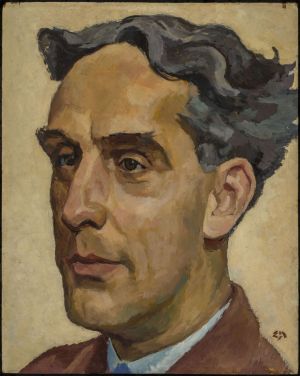 Portrait of George M. Brewer circa 1929-1930, By Edwin Holgate.
Portrait of George M. Brewer circa 1929-1930, By Edwin Holgate.
Montreal Museum of Fine Arts. Photograph: Christine Guest.
George M. Brewer (1889-1947) was a fascinating, and now long-forgotten, figure on the music scene in Montreal during the first half of the twentieth century. By profession, he was an organist at the Church of the Messiah as the Unitarian Church of Montreal was known at that time. By inclination, he was a theatre producer – of medieval dramas. But above all, he was an educator. He would perform organ adaptations of music rarely heard in Montreal, music which he discovered and collected on his numerous voyages all over Europe and beyond. And he would not just play the music; he would also talk about it and situate it in its historical, philosophical, and musical context.
His story is interesting enough in itself but it is even more so when we try to understand who was listening to him and who supported him. We discover a rich network of clubs, societies, and associations through which Brewer moved -- in English mainly but also in French. From the Pen & Pencil Club to the Société Casavant, from the Masonic Study Club to the Conservatoire de musique du Québec, Lorne Huston and Marie-Thérèse Lefebvre will introduce us to this lively environment of music lovers in Montreal during the interwar years.
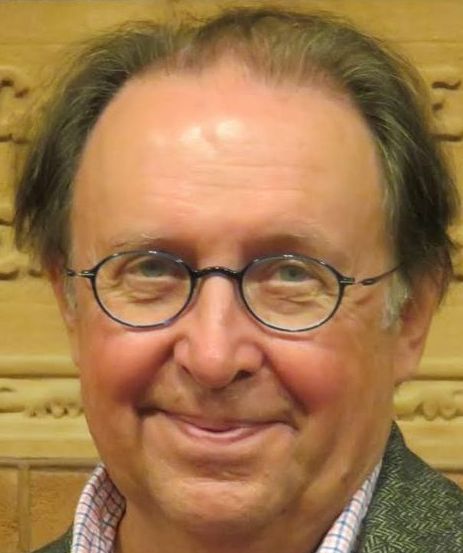 Lorne Huston holds a PhD in history from Concordia University and a Master's degree in Sociology from the Université de Montréal. He has been doing research on the history of the arts sector in English Montreal since he retired from active teaching at Cégep Édouard-Montpetit in 2010. In addition to the book he co-authored with Marie-Thérèse Lefebvre on the Montreal musicologist, George M. Brewer, he has also written articles on the Art Association, and on Samuel Morgan-Powell, art and drama critic at the Montreal Daily Star (1913-1953).
Lorne Huston holds a PhD in history from Concordia University and a Master's degree in Sociology from the Université de Montréal. He has been doing research on the history of the arts sector in English Montreal since he retired from active teaching at Cégep Édouard-Montpetit in 2010. In addition to the book he co-authored with Marie-Thérèse Lefebvre on the Montreal musicologist, George M. Brewer, he has also written articles on the Art Association, and on Samuel Morgan-Powell, art and drama critic at the Montreal Daily Star (1913-1953).
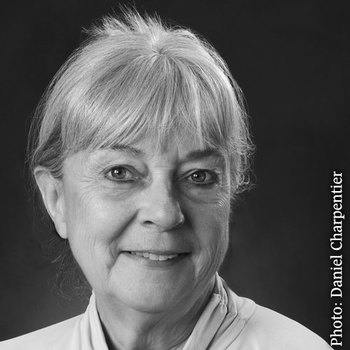 Marie-Thérèse Lefebvre, holder of a PhD in musicology from the Université de Montréal, was professor there from 1981 to 2010, Vice-Dean of graduate studies between 1993 and 1998 and Interim Dean in 1997–1998. Professor Emeritus of the Faculty of Music of the Université de Montréal and specialist in the history of music-life in Quebec, Marie-Thérèse Lefebvre has published several books and articles on various composers, including Auguste Descarries, Serge Garant, Rodolphe Mathieu, Gilles Tremblay and Jean Vallerand, as well as Chronologie musicale du Québec (1535-2004) (Septentrion, 2009) written in collaboration with Jean-Pierre Pinson.
Marie-Thérèse Lefebvre, holder of a PhD in musicology from the Université de Montréal, was professor there from 1981 to 2010, Vice-Dean of graduate studies between 1993 and 1998 and Interim Dean in 1997–1998. Professor Emeritus of the Faculty of Music of the Université de Montréal and specialist in the history of music-life in Quebec, Marie-Thérèse Lefebvre has published several books and articles on various composers, including Auguste Descarries, Serge Garant, Rodolphe Mathieu, Gilles Tremblay and Jean Vallerand, as well as Chronologie musicale du Québec (1535-2004) (Septentrion, 2009) written in collaboration with Jean-Pierre Pinson.
The book "George M. Brewer et le milieu culturel anglophone montréalais, 1900-1950" written by Lorne Huston and Marie-Thérèse Lefebvre, Éditions Septentrion 2020, can be browsed on the editor’s website:
https://www.septentrion.qc.ca/catalogue/george-m-brewer-et-le-milieu-culturel-anglophone-montrealais
===========================================================

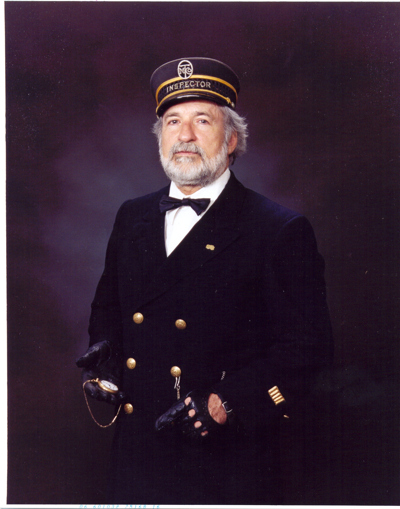 Daniel Laurendeau was born in Montréal in 1945. As early as 4 years old, he started his collection of City of Montreal transit related items. He is member of the Canadian Railroad Historical Association (CRHA) and volunteer at the Canadian Railway Museum at Delson / Saint-Constant since 1961. In 1985, he became Operator (Motorman) of streetcar tours on the Museum site, thus realizing his childhood dream. He presently sits on Exporail’s Board of Directors and Executive Committee and volunteers as a member of the Collections Committee. Beside his passion for trams, he had a successful career (35 years) at Honeywell Limited.
Daniel Laurendeau was born in Montréal in 1945. As early as 4 years old, he started his collection of City of Montreal transit related items. He is member of the Canadian Railroad Historical Association (CRHA) and volunteer at the Canadian Railway Museum at Delson / Saint-Constant since 1961. In 1985, he became Operator (Motorman) of streetcar tours on the Museum site, thus realizing his childhood dream. He presently sits on Exporail’s Board of Directors and Executive Committee and volunteers as a member of the Collections Committee. Beside his passion for trams, he had a successful career (35 years) at Honeywell Limited.
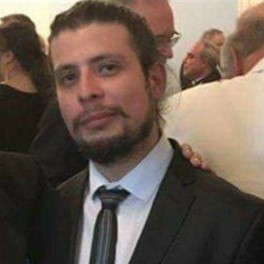 Paulo Zegarra-Llerena will talk on the history of trains:
Paulo Zegarra-Llerena will talk on the history of trains: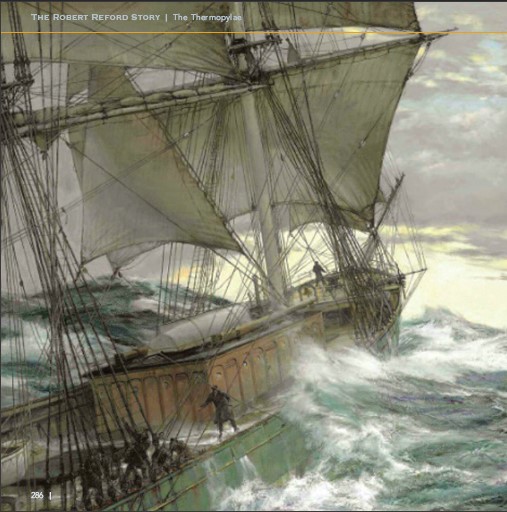
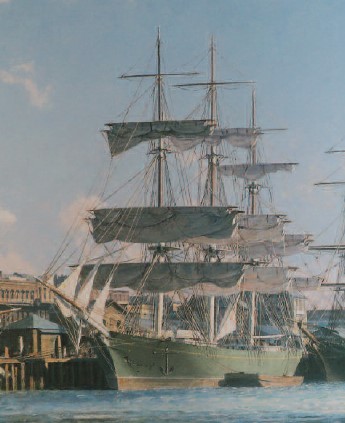
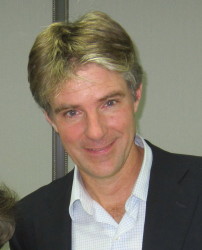 director of Les Jardins de Métis /
director of Les Jardins de Métis / 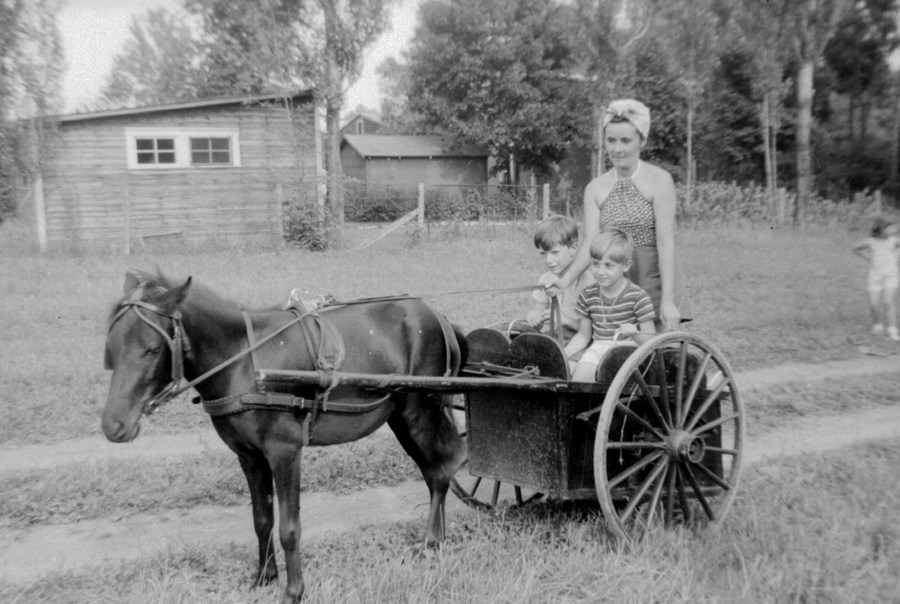
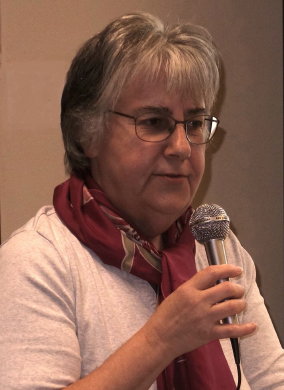
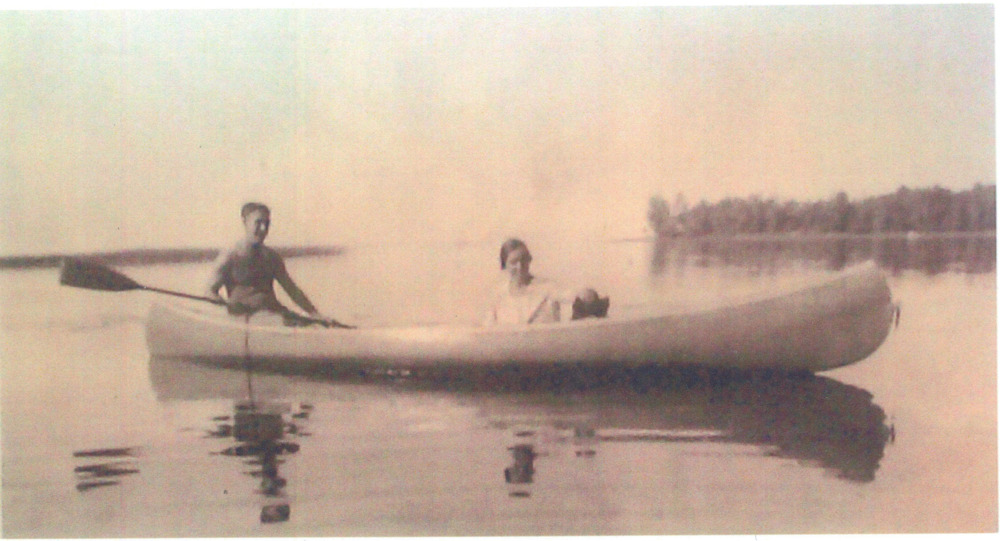 Pauline Faguy-Girard will present an overview of the different modes of transportation in Beaconsfield over the years. From canoeing on Lake St. Louis to the different modes of transportation used on our territory and by the citizens of Beaconsfield, of all ages.
Pauline Faguy-Girard will present an overview of the different modes of transportation in Beaconsfield over the years. From canoeing on Lake St. Louis to the different modes of transportation used on our territory and by the citizens of Beaconsfield, of all ages.
 David Shuman is Director of Research & Development and Board member of the Montreal Centre of the Royal Astronomical Society of Canada (RASC). Long time space enthusiast, amateur astronomer, David Shuman has a passion for past present and future exploration missions to the red planet Mars. He co-created a full scale model for the CSA of the Phoenix Lander, attended numerous Shuttle and rocket launches as well as numerous public talks on the subject of Mars in Canada and the US.
David Shuman is Director of Research & Development and Board member of the Montreal Centre of the Royal Astronomical Society of Canada (RASC). Long time space enthusiast, amateur astronomer, David Shuman has a passion for past present and future exploration missions to the red planet Mars. He co-created a full scale model for the CSA of the Phoenix Lander, attended numerous Shuttle and rocket launches as well as numerous public talks on the subject of Mars in Canada and the US.
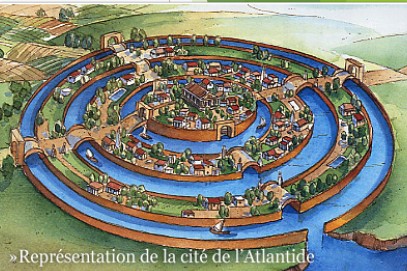
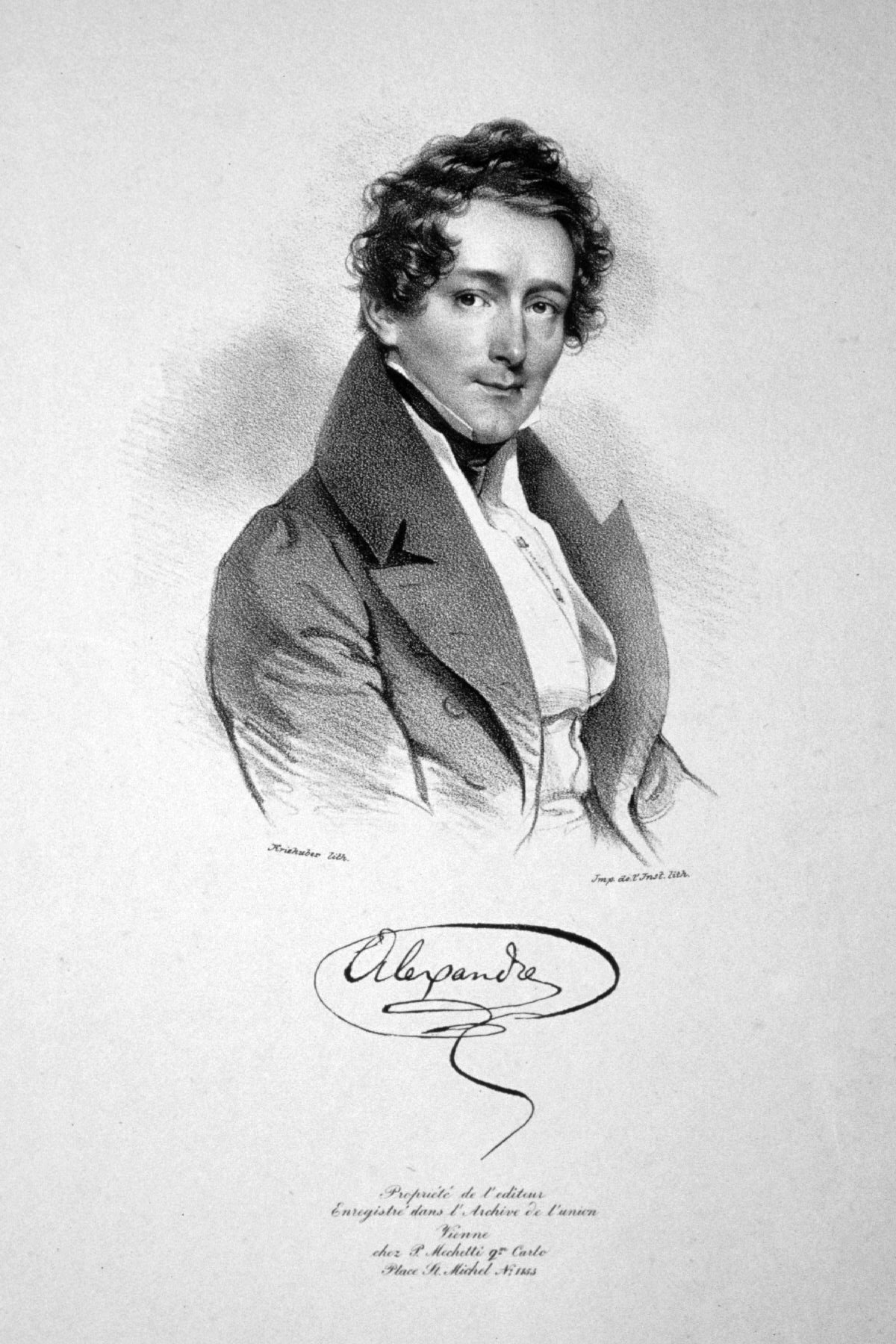 Alexandre Vattemare was born and died in Paris (1796-1864). He was a protean character. His exceptional talents of mime and ventriloquism earned him fame in post-Napoleonic Europe. If this man, esteemed by the rulers and the intellectual elite of his time, has gone down in history, it is because he has created an international system for the exchange of double specimens in the fields of arts, natural sciences , scientific and literary works, and advocated the construction of institutes bringing together many public services. He wanted to strengthen the bonds of friendship between groups of the human family and allow workers and poor people to learn easily. The purpose of this lecture is to identify the Vattemare project to build in Montreal and Quebec City, in 1840 and 1841, two institutes with multiple functions – real urban utopias – in order to break down national, linguistic, and cultural barriers through education, and in particular, free education of the workers and the poor.
Alexandre Vattemare was born and died in Paris (1796-1864). He was a protean character. His exceptional talents of mime and ventriloquism earned him fame in post-Napoleonic Europe. If this man, esteemed by the rulers and the intellectual elite of his time, has gone down in history, it is because he has created an international system for the exchange of double specimens in the fields of arts, natural sciences , scientific and literary works, and advocated the construction of institutes bringing together many public services. He wanted to strengthen the bonds of friendship between groups of the human family and allow workers and poor people to learn easily. The purpose of this lecture is to identify the Vattemare project to build in Montreal and Quebec City, in 1840 and 1841, two institutes with multiple functions – real urban utopias – in order to break down national, linguistic, and cultural barriers through education, and in particular, free education of the workers and the poor.
 Jacques G. Ruelland, Ph.D., retired professor, Department of Philosophy, Collège Édouard-Montpetit; Department of History, Université de Montréal; authored 48 books.
Jacques G. Ruelland, Ph.D., retired professor, Department of Philosophy, Collège Édouard-Montpetit; Department of History, Université de Montréal; authored 48 books.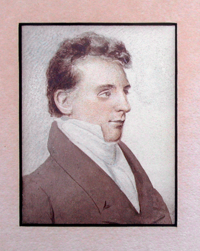 Robert Unwin Harwood was the spouse of Louise-Josephte de Lotbinière heiress of the Seigneurie of Vaudreuil. Robert Unwin is a rather fascinating character, a romantic Englishman who developed the Seigneurie of Vaudreuil during the troubled period of the Rebellion of 1837. Robert Unwin was quite a character, much loved by his French-speaking tenants or censitaires. He was able to attract the attention and sympathy of both his French Canadian and his English tenants, a rare case. I knew him through his grandson Henry de Lotbinière Harwood who introduced me to the English-speaking community of Hudson and helped me a lot in my career with his archives and his advice. For me, to speak of his great-grandfather is to pay tribute to one of the members of Quebec's English-speaking community who was committed to the flourishing of the French community in the region.
Robert Unwin Harwood was the spouse of Louise-Josephte de Lotbinière heiress of the Seigneurie of Vaudreuil. Robert Unwin is a rather fascinating character, a romantic Englishman who developed the Seigneurie of Vaudreuil during the troubled period of the Rebellion of 1837. Robert Unwin was quite a character, much loved by his French-speaking tenants or censitaires. He was able to attract the attention and sympathy of both his French Canadian and his English tenants, a rare case. I knew him through his grandson Henry de Lotbinière Harwood who introduced me to the English-speaking community of Hudson and helped me a lot in my career with his archives and his advice. For me, to speak of his great-grandfather is to pay tribute to one of the members of Quebec's English-speaking community who was committed to the flourishing of the French community in the region.